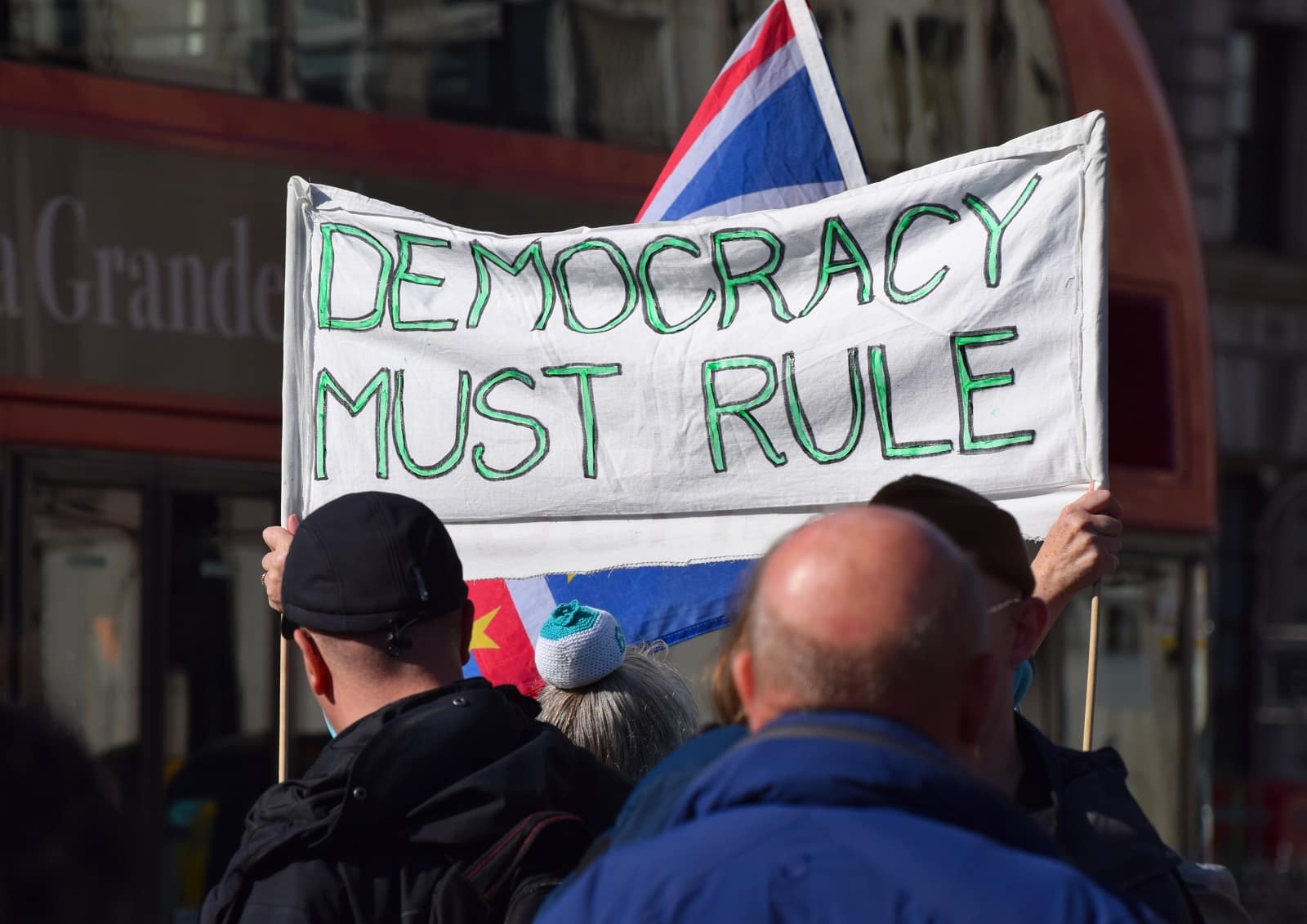The possibility of civil unrest following political events is a concerning topic in modern American discourse. While the term “civil war” might be an exaggeration, the polarization and underlying tensions in the U.S. make it a subject worth considering. Here are 15 reasons why some argue that a Trump victory could potentially trigger significant civil unrest or conflict.
#1. Deepening Polarization

A Trump victory might deepen the already existing political divide, exacerbating tensions between different ideological groups.
#2. Perceived Legitimacy Concerns

If there are concerns about the legitimacy of the election, it could lead to widespread protests and potential unrest.
#3. Rhetorical Escalation

Trump’s often combative rhetoric may incite strong reactions, fueling a more intense political climate.
#4. Social Media Amplification

Social media can amplify extreme views, and a Trump victory might set off a storm of online agitation.
#5. Militant Group Mobilization

The perceived emboldening of extremist groups could provoke counter movements, leading to potential clashes.
#6. Unresolved Racial Tensions

Trump’s stance on racial issues may aggravate existing tensions, possibly sparking unrest in various communities.
#7. Perception of Autocratic Behavior

Accusations of authoritarian tendencies could lead to fears of democratic erosion, mobilizing opposition.
#8. Economic Discontent

Economic policies that widen inequality might cause dissatisfaction among various segments of the population.
#9. Media Distrust

Continued attacks on media integrity may undermine public trust in information, fueling confusion and anger.
#10. International Interference Fears

Concerns over foreign interference in election results might stoke fears and unrest among various factions.
#11. Weaponization of Misinformation

The spread of misinformation might create a volatile environment where facts are disputed, leading to potential conflict.
#12. Failure to Address COVID-19

Continued dissatisfaction with COVID-19 responses could add to existing frustrations and discontent.
#13. Erosion of Institutional Trust

A perceived undermining of key democratic institutions might erode trust and lead to widespread disillusionment.
#14. Inflammatory Reaction From Opposition

An intensely negative reaction from Trump’s opposition might spark protests that escalate into broader conflicts.
#15. Legal Challenges to the Election

Protracted legal battles over election results could draw out tensions, increasing the likelihood of unrest.
Democracy Thrives on Disagreement

While the term “civil war” may be hyperbolic, these 15 reasons illustrate the underlying tensions and potential triggers for significant civil unrest in the wake of a Trump victory. Political leaders, media, and citizens must engage in responsible discourse and actions to mitigate these risks.
Democracy thrives on disagreement and debate but also requires a shared commitment to core principles and the peaceful transfer of power.
More From Frugal to Free…
U.S. Budget Breakthrough: A Huge Step Forward Amidst Looming Shutdown Threat
Will Easing Inflation in America Continue?
The post America Under Trump’s Second Term: Civil Unrest or Just Hype? first appeared on From Frugal to Free.
Featured Image Credit: Shutterstock / Maxim Elramsisy.
The content of this article is for informational purposes only and does not constitute or replace professional financial advice.
